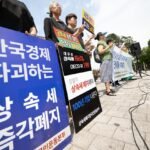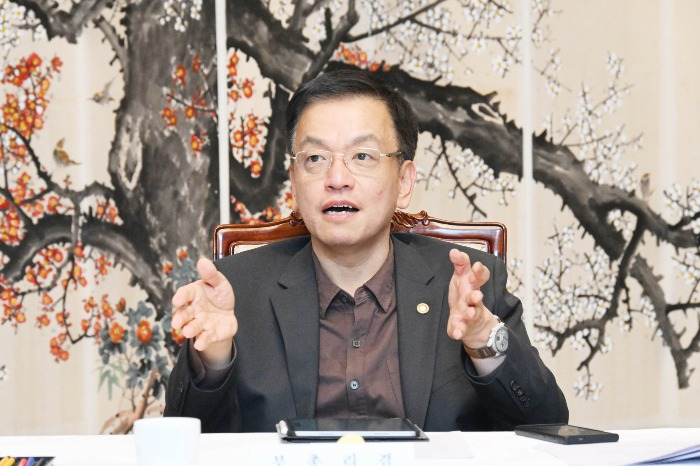
South Korea’s Finance Minister Choi Sang-mok said on Friday that President Yoon Suk Yeol’s failed martial law attempt will have a very limited impact on the domestic economy and financial markets. He dismissed fears the country would fall into a recession next year as overdone.
In an interview with Bloomberg, Choi said the country’s financial markets are stable and if market volatility increases over the short term, financial authorities and the Bank of Korea (BOK) are ready to provide them unlimited liquidity.
He forecast a slight moderation of economic growth in Korea, but said it would not fall below its potential growth rate.
BOK Governor Rhee Chang-yong also shrugged off concerns about the country’s political risk.
In an interview with the Financial Times released on Friday, he said political uncertanty in Korea, heightened by the martial law rout earlier this week, would have a limited impact on Asia’s fourth-largest economy.
He explained that the impact of the martial law debacle was modest and short-lived thanks to financial authorities’ prompt, comprehensive measures, including liquidity injection.
Rhee told the FT that the Korean economy is more vulnerable to US trade tariffs during Donald Trump’s second term and competition from Chinese companies than domestic political uncertainty.
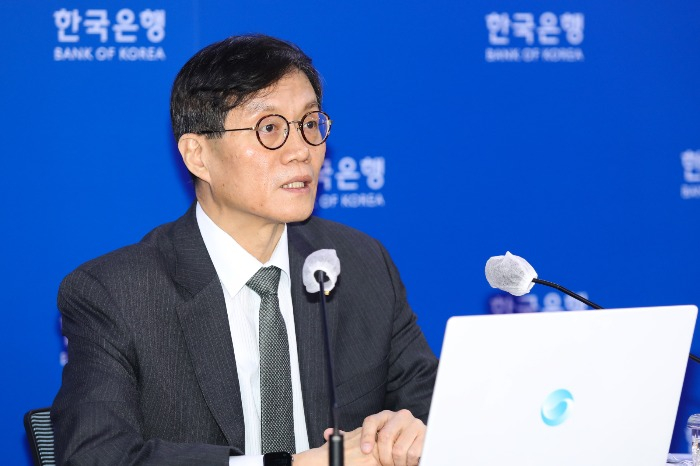
MARKET STABILITY AMID NEW MARTIAL LAW RUMORS
Korean stock, bond and foreign exchange markets have remained relatively stable after seesaw trading since President Yoon declared martial law on Tuesday night and subsequently lifted it a few hours later.
On Friday, domestic financial markets fluctuated after the country’s ruling party leader warned of a new emergency act by President Yoon.
In an opening speech at the People Power Party’s leadership meeting on Friday, its chief Han Dong-hoon called for immediately suspending Yoon from his duties. He hinted at his support for opposition parties’ attempt to impeach Yoon in a parliamentary vote on Saturday.
Following his remarks, the Korean won retreated to 1,429.2 per dollar, marking its weakest point since Nov. 4, 2022 in domestic trading.
But it recouped much of the losses to close at 1,419.2, versus Thursday’s close of 1,415.2 on massive dollar-selling intervention, said dealers.
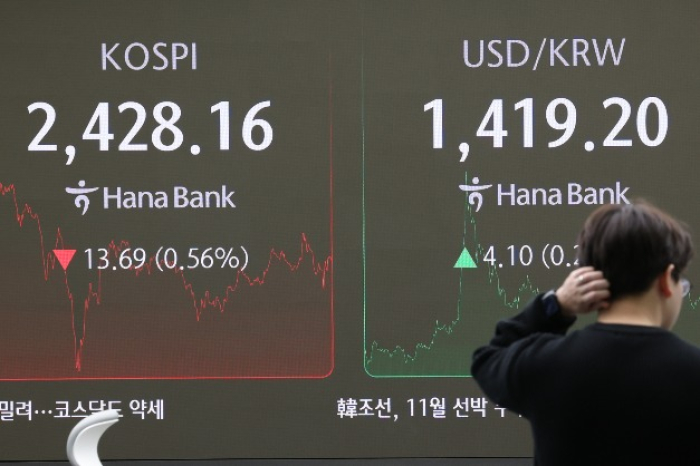
FOREIGN BARGAIN-HUNTING
The stock market also pared losses by the market’s close as foreign and institutional investors hunted for bargains.
The benchmark Kospi index closed down 0.56% at 2,428.16. It fell to as low as 2,397.73 at one point, its lowest point in 13 months.
High on the list of foreign net buying were SK Hynix Inc., Doosan Enerbility Co. and POSCO Holdings Inc. Foreign investors also bought up shipbuilder HD Hyundai Heavy Industries Co. and JYP Entertainment Corp.
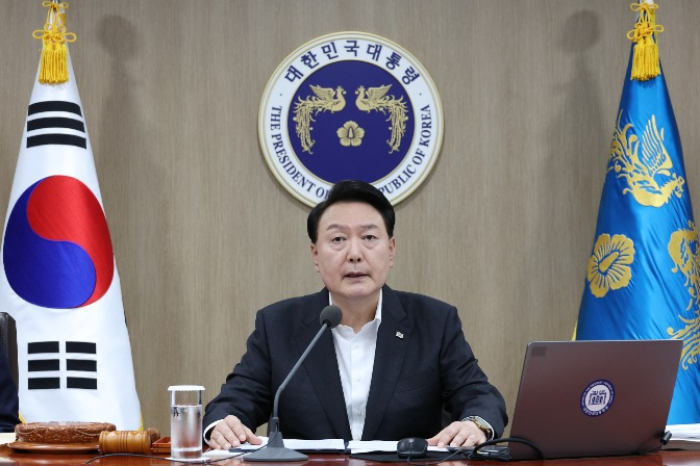
On Friday morning, the government said in a statement it will keep pushing for reforms to the foreign exchange and stock markets regardless of the recent political situation, after Finance Minister Choi met with the BOK’s Rhee.
Meanwhile, Korea’s current account surplus contracted slightly to $9.78 billion in October, compared with $10.94 billion in September, central bank data showed.
The country’s foreign exchange reserves dwindled by $300 million to $415.4 billion in November, compared with the previous month, according to the BOK.
By Jin-gyu Kang and Byung-Hoon Yang
jisep@hankyung.com
Yeonhee Kim edited this article.





